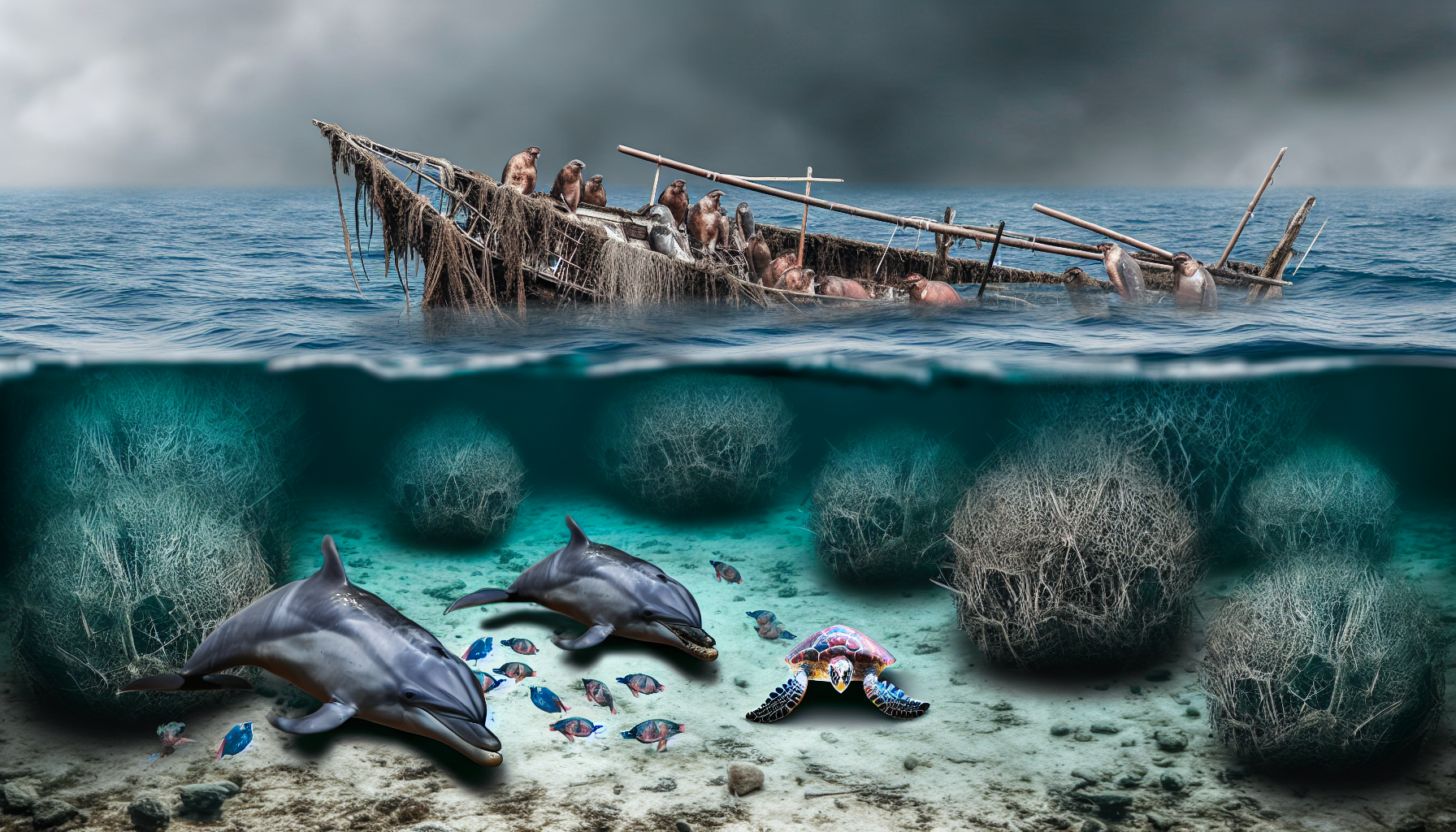In the vast, eerie silence of the deep, a tragedy is unfolding – one without ripples or roaring waves to tell of its unfolding disaster. The marine dystopia we’ve feared has arrived; its victims, the ocean’s orphans, are a silent plea for the reckoning of humankind’s destructive path. Ocean’s Orphans – The Plight of Displaced Marine Life delves into the untold stories of the creatures that once thrived beneath the waves, now wanderers in their own disintegrating home.
Imagine, if you will, a mother dolphin tirelessly calling for her calf, vanished into the murky distance, where once crisp, clear waters reigned. Coral landscapes, vibrant and teeming with life, now reduced to bleached, brittle graveyards. Schools of fish, aimless after their breeding grounds have been upended by acidification and soaring temperatures, leaving them as orphans amidst the waves. These are not scenes from a far-off world or a futuristic novel. This is the present reality, a grim tableau drawn by the steady hand of environmental neglect.
Where Have the Safe Havens Gone?
Life beneath the sea has always been a competitive affair, a complex dance of predator and prey, growth and decay. Nevertheless, the ocean’s creatures had sanctuaries, safe havens in which to thrive. Now, the sanctuaries are vanishing. The harsh truth is that marine life, once shielded by the grand expanse of the ocean from the immediate impacts of land-based turmoil, is facing its own version of exile.
With their ecosystems in tatters, these hapless beings find themselves evicted from habitats long-held sacred and salubrious. It’s not just the warming waters, acidifying seas, or even the ever-expanding dead zones that assail these creatures. The relentless siege of plastic pollution is choking, ensnaring, and poisoning even the most reclusive of marine denizens.
A Closer Look at the Victims
Take, for example, the plight of the hawksbill turtle, already critically endangered before our oceans turned sour. Caught in ghost nets or ingesting lethal microplastics, they are often found malnourished, gasping at the surface, and ever so far from their natal beaches, now eroded or polluted beyond recognition.
And let us not forget the magnificence of the whales. Will the haunting song of the humpback become a dirge as they navigate increasingly empty waters, a requiem for a once-flourishing life system? Their migratory paths have been rerouted by melting ice and the quest for food has grown more desperate as each day passes.
Last Chapter of an Ancient Story
Deep below, where sunlight dares not reach, ancient and bizarre creatures like the anglerfish and the giant squid face their doom, not from the perilous environment they’ve mastered but from an inescapable, foreign threat: the suffocating grip of human-induced changes.
These ocean dwellers are the lost children of the sea, ripped away from the arms of their natural existence, left to navigate a rapidly deteriorating world. They are not just losing their homes but their very identities, for what is a fish without a coral reef, or a whale without its chorus of kin?
As their world unravels, these ‘orphans’ send silent signals of the devastation that awaits them – and maybe, eventually, us. For if we stare long enough into the abyss that our oceans are becoming, it’s a chilling reality that the abyss stares back into our own possible future.
Are we ready to listen? Or will we turn a deaf ear until the ocean’s requiem is the only music left to mourn the death of a world we once knew – a world full of wonder, life, and astonishing biodiversity, now slipping through our fingers like fine sand as the final curtain closes on a most tragic play.
It is a tale of loss, of indescribable sorrow for those who roam the deep, and a stark, urgent warning to those of us who roam the earth – to act before the only tales left to tell of the sea are those of ghosts and shadows, whispering of what once was.
